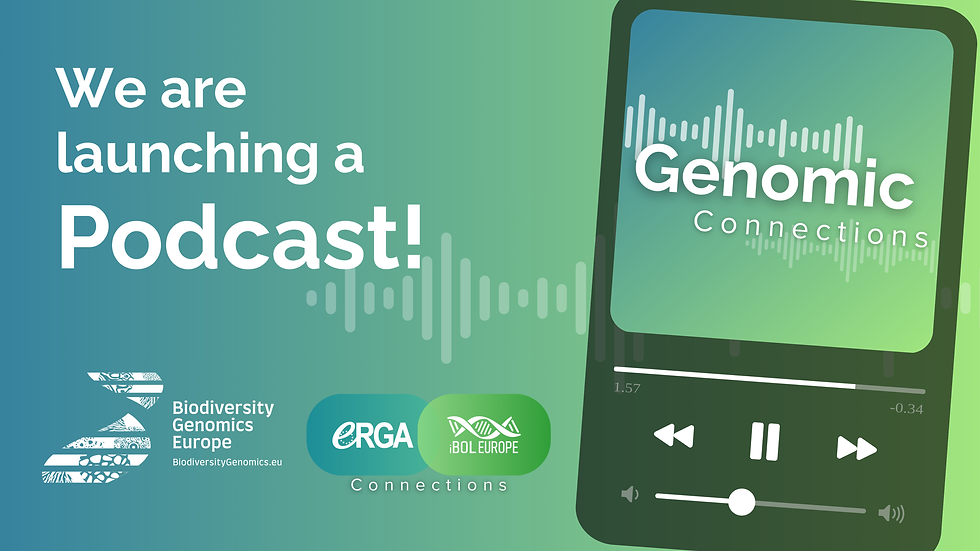Pioneering Biodiversity: Citrullus colocynthis Genome Becomes the First ERGA Community Genome
- luisamarins19
- Sep 19, 2024
- 2 min read
In 2023, researchers at the International Center for Biosaline Agriculture (ICBA) in Dubai embarked on a groundbreaking genomic project. The study focused on the chromosome-level assembly and annotation of Citrullus colocynthis, a drought-tolerant wild relative of the domesticated watermelon (Citrullus lanatus). This research is significant as it provides critical insights into the genetic mechanisms underlying drought and salinity resilience, which is vital for the development of crops capable of thriving under increasingly harsh climatic conditions. The project aimed to leverage these genetic insights to improve the drought tolerance, disease resistance, and nutritional profiles of cultivated crops, thus contributing to global food security. The project, led by Dr. Anestis Gkanogiannis, Bioinformatics Scientist in ICBA, has resulted in the first genome to be officially linked to the ERGA as a Community Genome. This milestone not only highlights the importance of C. colocynthis in global biodiversity but also serves as a motivating example for other researchers to contribute to the ERGA initiative.

The research involved advanced genomic sequencing technologies, including HiFi, IsoSeq and Hi-C, to achieve a high-quality chromosome-level assembly and annotation of Citrullus colocynthis. The genome assembly revealed a genome size of approximately 366 Mb, characterized by low heterozygosity and significant repetitive content. Notably, the study identified 23,327 gene models that would enable researchers to uncover pathways associated with stress response mechanisms, which are key to the species' adaptation to arid environments. Being part of the ERGA community facilitated collaboration and resource sharing, which were instrumental in achieving the project's goals. Notable is the participation in the 2023 Elixir-Europe Biohackathon, along with fellow members of the ERGA annotation committee (Click here to read more about it)The inclusion of this assembly in the ERGA project highlights its value to the broader scientific community, especially in the context of biodiversity conservation and crop improvement. This work will serve as a reference for future studies on plant adaptation and resilience, particularly in the context of climate change and food security
This genome assembly's recognition as the first ERGA Community Genome is a significant achievement, setting a precedent for future contributions to the ERGA project. The data generated from this project has been made publicly available through ENA (umbrella BioProject PRJEB78362) with ERGA's stamp of approval, fostering collaboration and further research in the field of genomics. The success of this project is expected to inspire other researchers to contribute their own genomic data to the ERGA initiative, expanding the global understanding of biodiversity. Additionally, the insights gained from the Citrullus colocynthis genome may inform breeding programs aimed at developing crops capable of withstanding extreme environmental conditions, thus contributing to global food security.
This achievement would not have been possible without the collaborative efforts of the International Center for Biosaline Agriculture researchers, especially the Crop Diversification and Genetics Section under the Crop improvement and sustainable production Theme (Drs. Augusto Becerra, R. K. Singh and Hifzur Rahman) and ICBA's gene bank (Dr. Mohammad Shahid).
About the Author
Anestis Gkanogiannis is a researcher at the International Center for Biosaline Agriculture, contributing to the ERGA Sequencing & Assembly and Annotation Committees. He is involved in genomics projects aimed at improving agricultural resilience through innovative crop breeding strategies.
Related Links:







